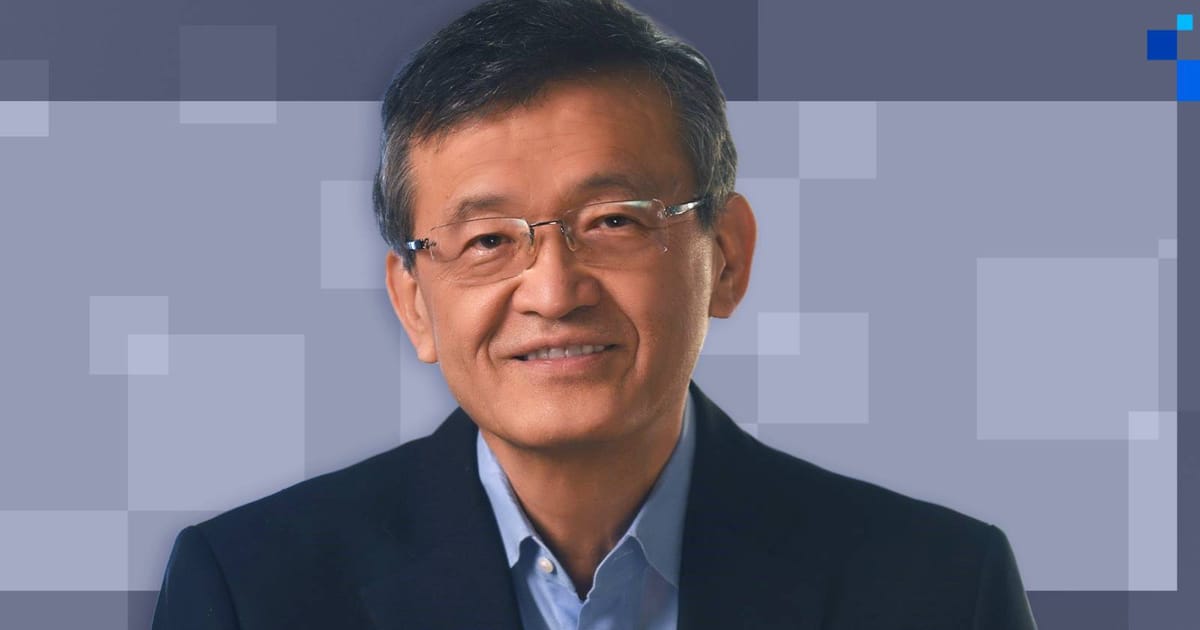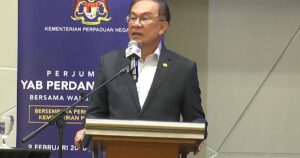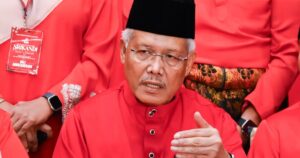
Days after calling for the firing of Intel Corp’s CEO, president Donald Trump changed his mind following a “very interesting” meeting with the executive. “His success and rise is an amazing story,” Trump wrote in a Truth Social post on Monday.
It’s a story that’s also made Lip-Bu Tan amazingly rich.
The 65-year-old technology and venture capital industry veteran has amassed a fortune worth at least US$1.1 billion, according to the Bloomberg Billionaires Index, which is calculating Tan’s net worth for the first time.
The bulk of his fortune stems from Cadence Design Systems Inc., a maker of chip design tools where Tan was chief executive officer for 12 years before joining Intel. He has sold shares worth more than US$575 million in the San Jose, California-based company, and still holds a US$500 million position, according to Bloomberg’s calculations.
A Bloomberg report late Thursday afternoon saying the Trump administration is in talks with Intel to have the US government potentially take a stake in the Silicon Valley chipmaker sent the company’s shares up 7.4% in New York. The stock gained 15% since Tan’s appointment as CEO in March, boosting the value of his stake to more than US$29 million.
It was Tan’s tenure at Cadence, along with his other role as executive chairman of venture firm Walden International, that initially drew criticism from Washington. Trump ally and Republican senator Tom Cotton sent a letter to Intel’s board chair earlier this month questioning Tan’s ties to China and his history at Cadence, which sold products to a Chinese military university. A day later, the president posted that Tan was “highly CONFLICTED and must resign, immediately”.
Tan called the claims “misinformation” in a letter to employees. But his record of investing in China and the riches it has brought him had already cast a shadow over his work.
In July, Cadence pleaded guilty to violating US export controls during Tan’s tenure and took a US$140.6 million charge related to settling the cases. Earlier, in 2023, the US government had sent Tan a letter asking Walden to explain its investments after the San Francisco-based firm had invested in more than 100 Chinese companies.
“I want to be absolutely clear: Over 40+ years in the industry, I’ve built relationships around the world and across our diverse ecosystem – and I have always operated within the highest legal and ethical standards,” Tan wrote in response to the allegations.
A spokesman for Santa Clara, California-based Intel declined to comment.
‘Sunset’ Industry
A naturalized US citizen, Tan was born in Malaysia in 1959, the youngest of five children. His father was editor-in-chief of a Malaysian newspaper, while his mother was a professor in Singapore.
After graduating with a degree in physics from Nanyang Technical University, he earned a Masters in nuclear engineering from Massachusetts Institute of Technology and an MBA from the University of San Francisco.
His move to Silicon Valley brought him into the venture capital world. He met the founding partner of Walden Capital and proposed raising an international fund for them, offering to do so without being paid a salary, according to an oral history of his life from a 2018 interview at the Computer History Museum. The first fund of US$3.3 million was partially seeded with the help of his father-in-law and his father’s friends in Malaysia.
Tan’s technical background led him to concentrate on semiconductors at a time when it was seen as a “sunset” industry. His investors questioned the strategy, wondering why he would invest in an area US firms had largely abandoned, he said in the 2018 interview. “Now they’re starting to recognize my strategy worked.”
Walden International went on to invest US$5 billion in more than 600 companies across 12 countries, many of them niche semiconductor firms. For a decade and a half, he served on the board of Semiconductor Manufacturing International Corp., now China‘s leading chipmaker.
Since joining Intel as CEO in March, Tan has accelerated his divestments in Chinese technology companies. But he remains executive chairman of Walden International and also invests through Walden Catalyst Ventures, a venture arm focused on startups in the US, Europe and Israel.
Through Sakarya Ltd., a Hong Kong-based firm wholly owned by Tan, and various Walden International entities, he has invested in at least 165 Chinese firms and startups, according to Chinese company data provider Qichacha.
Bloomberg’s estimate of Tan’s fortune doesn’t include Walden International as his personal involvement in the group’s entities isn’t disclosed.
Little Sleep
During his time as Cadence’s CEO from 2009 to 2021, the stock increased more than 4,000%. Tan sold in excess of US$575 million of shares through the end of 2023, when he last reported sales. His disclosed ownership at the time of 1.5 million shares, or around 0.53% of the company, is worth about US$500 million today.
While running Cadence, he also kept his full-time position at Walden, acknowledging in the 2018 interview that he was someone who only needed four or five hours of sleep a night. He saw the roles as synergistic, with the tech investments helping to inform Cadence’s direction at the time.
“I think it kind of goes hand in hand, helping the industry, and also, it’s good for me for education,” he said. “I never stop learning”.
Tan stepped down as Cadence’s CEO in 2021, taking on the role of executive chairman for next two years. He also joined Intel’s board, though left in August 2024 after disagreements over the company’s strategy and direction, according to published reports. He was named CEO in March, charged with reviving the chipmaker, which has struggled recently as computing migrated to smartphones and AI grew in importance.
Tan, who has since rejoined Intel’s board, owns roughly 1.2 million shares of Intel, with about 99% acquired after agreeing to become CEO, according to an offer letter from Intel. His pay package includes a salary of US$1 million, plus a 200% performance-based bonus and US$66 million in long-term equity awards and stock options, the company said in a filing.
“The US has been my home for more than 40 years,” Tan wrote in the letter to employees following Trump’s call for his resignation. “I love this country and am profoundly grateful for the opportunities it has given me.”






